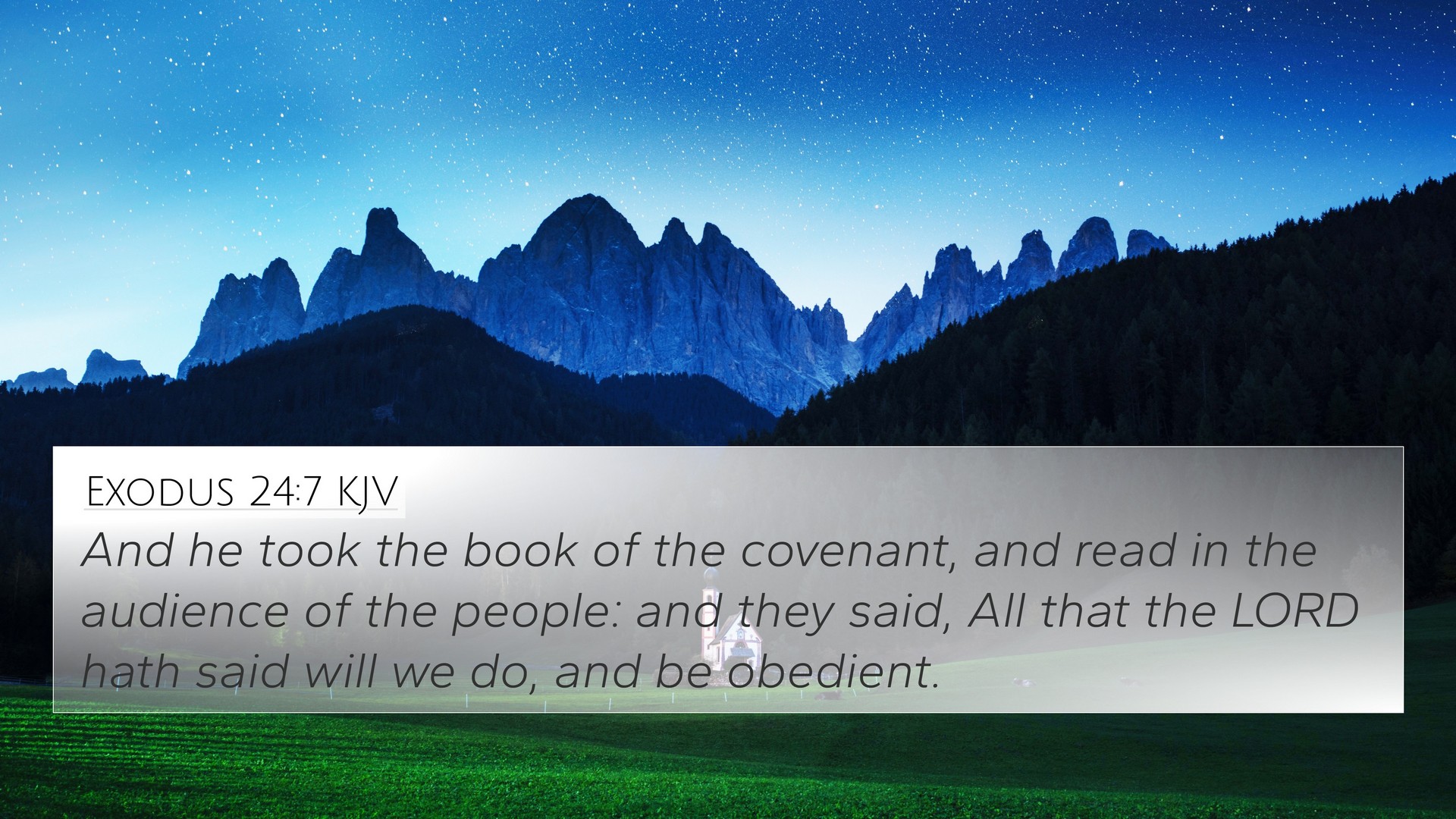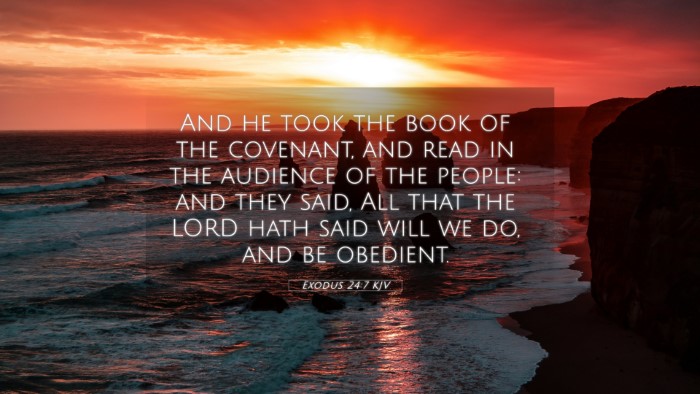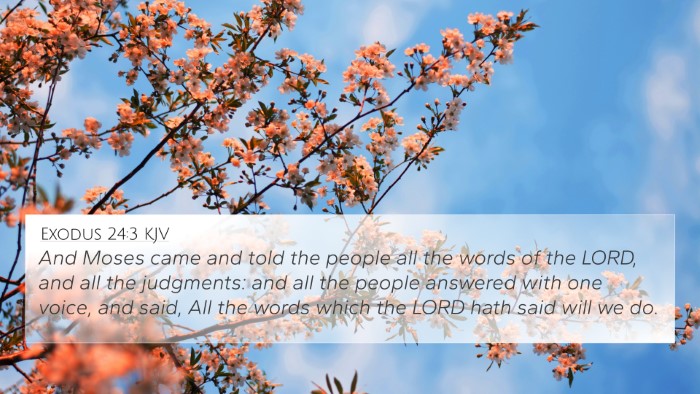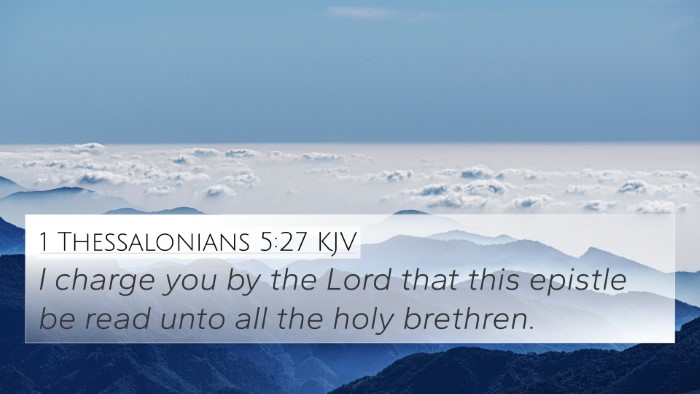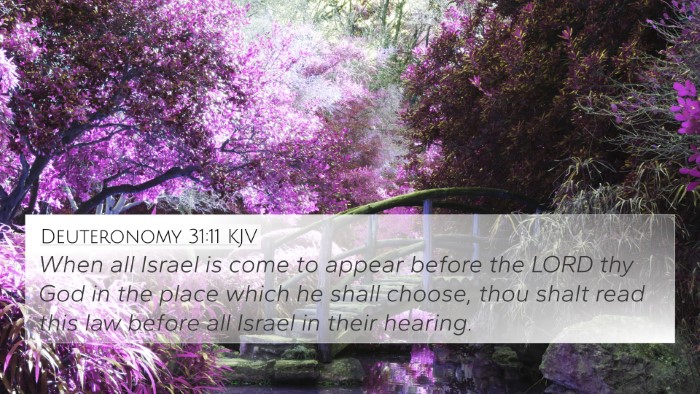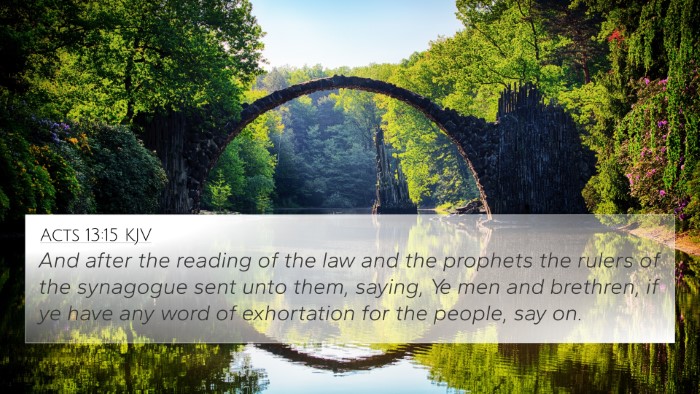Exodus 24:7 - Meaning and Interpretation
Bible Verse: Exodus 24:7 - "And he took the book of the covenant, and read in the audience of the people: and they said, All that the Lord hath said will we do, and be obedient."
Summary of Insights from Public Domain Commentaries
This verse encapsulates a significant moment in the establishment of the covenant between God and His people. It highlights the commitment of the Israelites to obey God's commandments as they are presented. Several public domain commentaries provide layers of meaning and insight into this scripture.
Matthew Henry's Commentary
Henry emphasizes the importance of the covenant as a formal agreement, underscoring the seriousness with which the Israelites approached their relationship with God. The act of reading the covenant signifies the clarity and directness of God's expectations. Henry points out that the people's response illustrates both their enthusiasm and willingness to submit to God’s laws.
Albert Barnes' Notes
Barnes elaborates on the significance of the "book of the covenant," interpreting it as a foundational document that laid out the moral and legal framework for Israel. He notes that the people's affirmation—"We will do and be obedient"—demonstrates a collective commitment that was essential for their identity as God's chosen people. This moment marks a pivotal transition from slavery in Egypt to a life of obedience under divine instruction.
Adam Clarke's Commentary
Clarke addresses the theological implications of this covenant. He posits that the declaration of obedience reflects a deeper principle of faith and trust in God's plan. Clarke also highlights the communal aspect of the agreement, suggesting that it represents a united front of the Israelites, promising loyalty to God's word as a new identity.
Key Themes and Biblical Connections
The verse is pivotal in understanding the relationship between the Israelite community and God. It serves as a foundation for many biblical themes, including obedience, covenant, and communal identity. Below are several related biblical cross-references that deepen our understanding of these concepts:
- Hebrews 9:18-20 - Discusses the necessity of the covenant being established with blood, paralleling the seriousness of God's commands.
- Deuteronomy 5:27 - The Israelites respond similarly to Moses’ recitation of God’s commandments, reinforcing their commitment to obedience.
- Joshua 24:24 - The echoes of commitment are repeated in this later vows to serve the Lord.
- 1 Samuel 12:24 - Calls for obedience and serving God faithfully, which resonates with the vow made in Exodus 24:7.
- Romans 12:1 - Reflects the New Testament interpretation of being living sacrifices, paralleling the idea of obedience in worship.
- 2 Corinthians 8:5 - The Macedonian churches exemplify the spirit of willing obedience shown by the Israelites.
- Ephesians 4:3 - The unity of the Spirit reflects the unity in commitment that the Israelites exhibited when they pledged their obedience.
Understanding the Community's Response
The collective agreement of the Israelites signifies not just individual commitment, but a community ethos where obedience to God’s will is paramount. This sociological aspect addresses how faith acts within a group rather than just on an individual level. The consequences of this collective promise ripple throughout their history and become a model for understanding obedience in faith communities today.
How to Utilize Cross-Referencing in Study
For those interested in delving deeper into the Scripture and understanding the connections between biblical texts, employing tools for Bible cross-referencing can prove invaluable. By exploring the following methodologies, one can uncover thematic Bible verse connections:
- Bible Concordance: Helps in locating specific terms and themes across scriptures, facilitating identification of connections.
- Bible Cross-Reference Guide: Aids in finding verse parallels, showing how different scriptures interrelate.
- Cross-Reference Bible Study: Engaging in studies that highlight inter-Biblical dialogue enriches understanding of scripture as a cohesive narrative.
Conclusion
In summary, Exodus 24:7 serves as a powerful moment of commitment to God’s covenant, encapsulating themes of obedience, community identity, and divine law. The insights gained from various commentaries reveal deep theological significance and encourage further exploration of related biblical texts. This facilitates a richer understanding of Scripture and encourages the practice of cross-referencing to unveil deeper connections among Scriptures.
